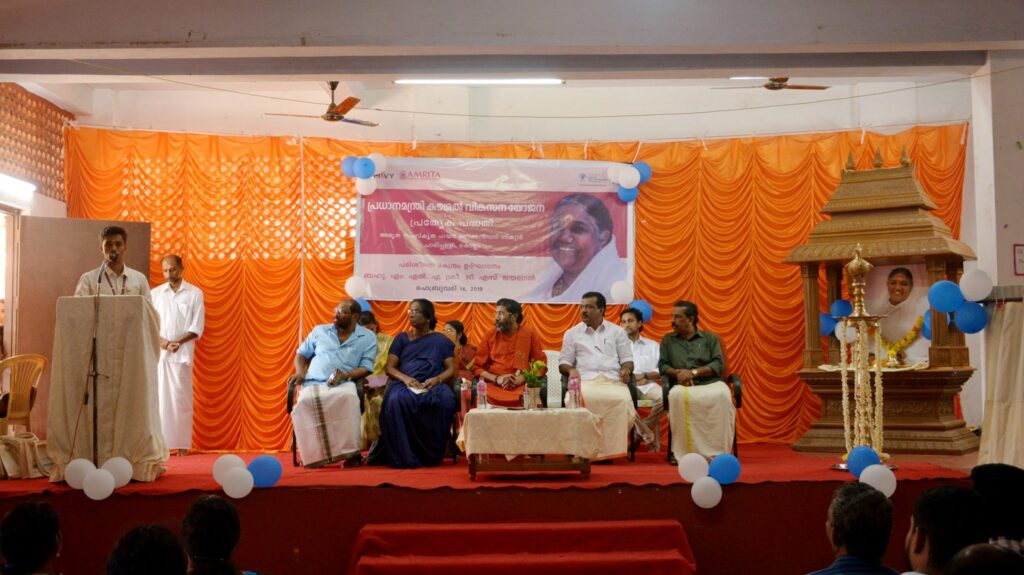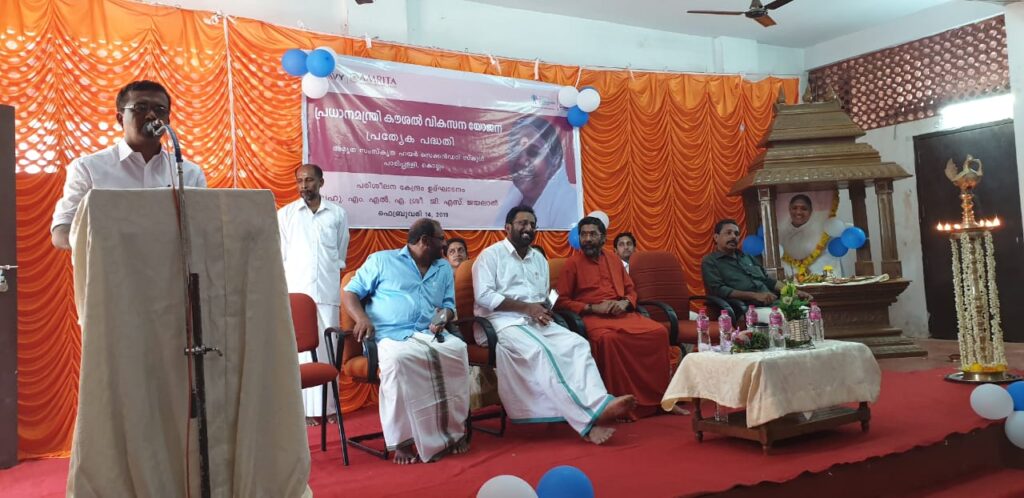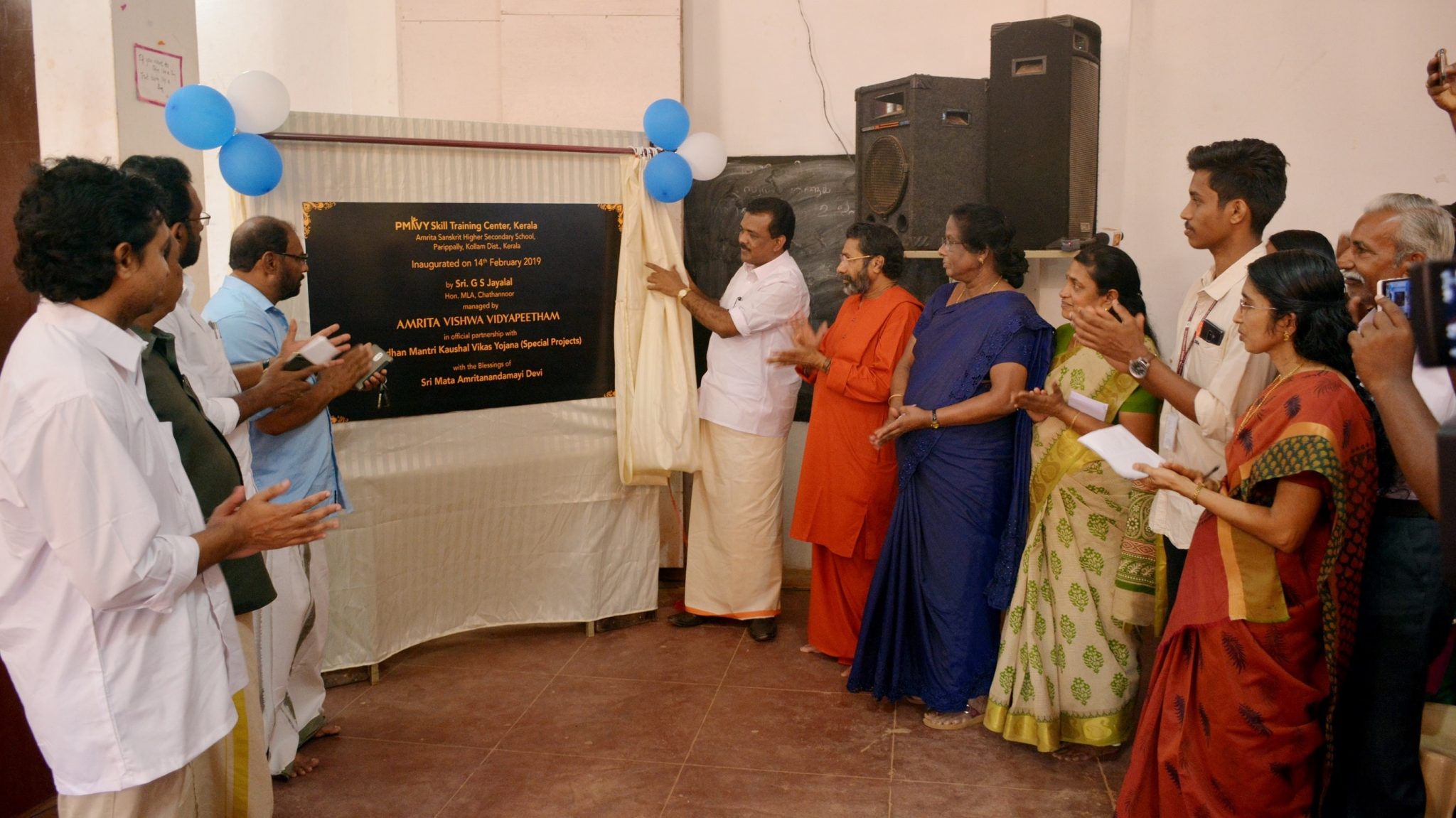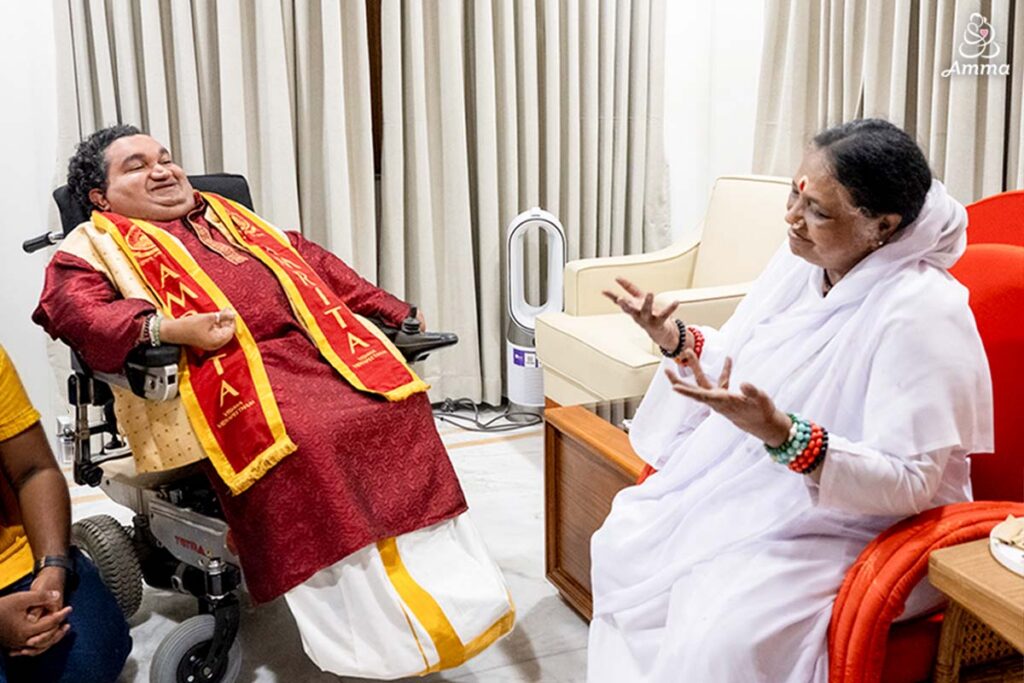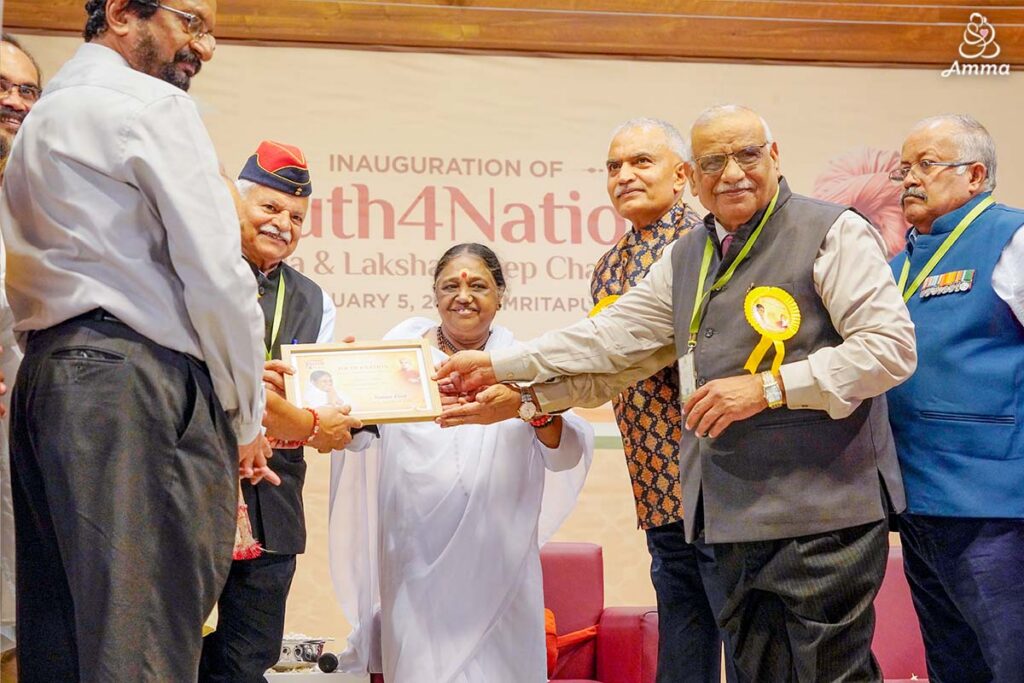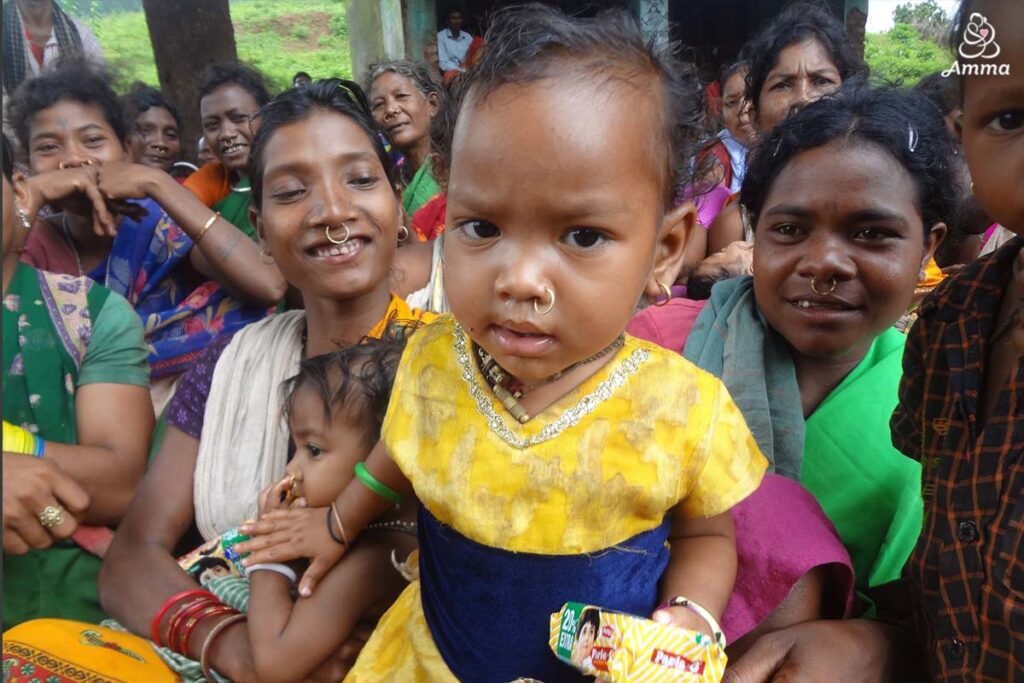- Amrita Vishwa Vidyapeetham has been selected as an implementing agency for the Govt. of India’s Pradhan Mantri Kaushal Vikas Yojana (PMKVY) Special Project initiative.
- Amrita to open 12 PMKVY training centres across five states in India and will train over 1000 students in the next year.
- The centre at Paripally will train over 90 students
Paripally, Kerala
February 14, 2019
Sri. G.S. Jayalal, Hon. MLA, Chathanoor, inaugurated a brand new Amrita PMKVY centre at the Amrita Sanksrit Higher Secondary School in Paripally, Kerala today. PWD Panchayat standing committee Chairman Sri. V Jayaprakash; Block Panchayath President S Laila; Block Panchayat Member A Sundareshan; Panchayath President Smt. P Ambika Kumari; Ward Member Smt. Shaila Ashaokadas; and PTA President PM Radhakrishnan also attended the function.
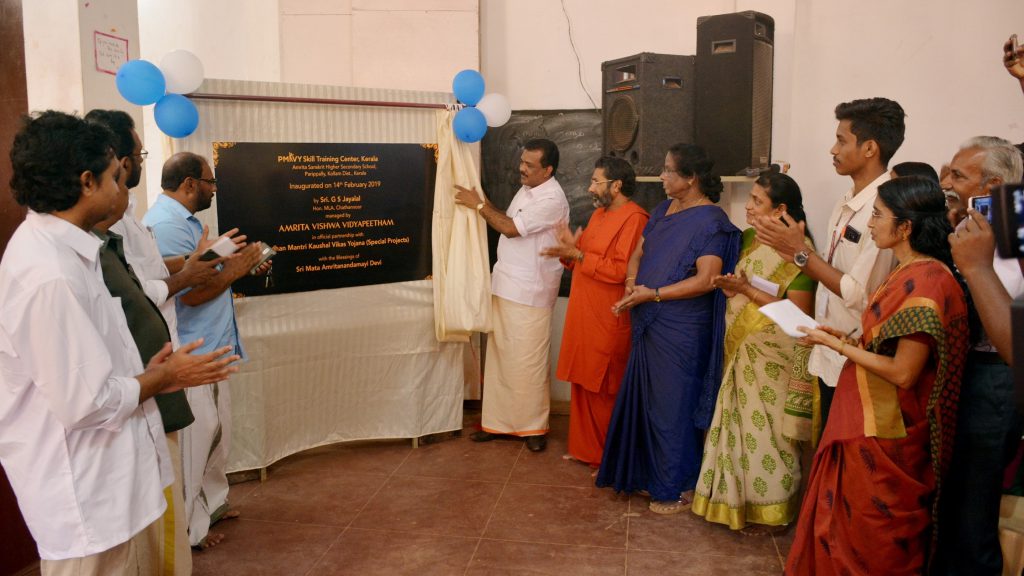
Students from underserved communities in remote locations will have access to state-of-the-art training in critical, industry-relevant skills at the new centre. Courses include Automotive Service Technician (two- and three- wheelers), and Self-Employed Tailor. Under the PMKVY Special Project initiative, Mata Amritanandamayi’ Math’s Amrita Vishwa Vidyapeetham will open and operate 12 skill training centres across five states: Odisha, Jharkhand, Chhattisgarh, Tamil Nadu, and Kerala. Courses include Automotive Service Technician (two- and three- wheelers), Self Employed Tailor, General Duty Assistant, Plumber General, and Domestic Data Entry Operator.
The Amrita PMKVY Centre at Paripally will follow a “Hub Deployment Model” to train, certify, place and empower working-age youth between the ages 18 and 35 struggling to access viable economic opportunities. Towards the objective of establishing a culture of gender equality and equal opportunity, 50% of all seats are being reserved for economically and socially disempowered women, emphasizing a culture of gender equality and equal opportunity. The project plans to target 1005 students in 6 districts throughout India over three phases.
“Our Amrita PMKVY centres will enable socially marginalized and economically disadvantaged youth to access skill development that will be free of cost. The methodology that we adopt in providing skill development through technology blended teaching and learning not only improves accessibility but also raises the standard and quality of vocational education. After completing the course, our trainees gain the technical skills required for employment, and also receive life skills that transform them into more socially responsible citizens,” says Prof. Bhavani Rao, Director of the Amrita PMKVY Project at Amrita Vishwa Vidyapeetham.
The centre’s integrated training methodology is inspired by Sri Mata Amritanandamayi Devi’s vision for education: “There are two kinds of education: education for living and education for life. While education for living is essential for success in the academic and economic sense, education for life equips young people with the knowledge, skills, and values needed to lead an ethical, empowering and socially beneficial life.”
It is with this vision that the training centres are founded upon with the promise to touch the lives of India’s youth in a way that equips them with relevant skills for the future.
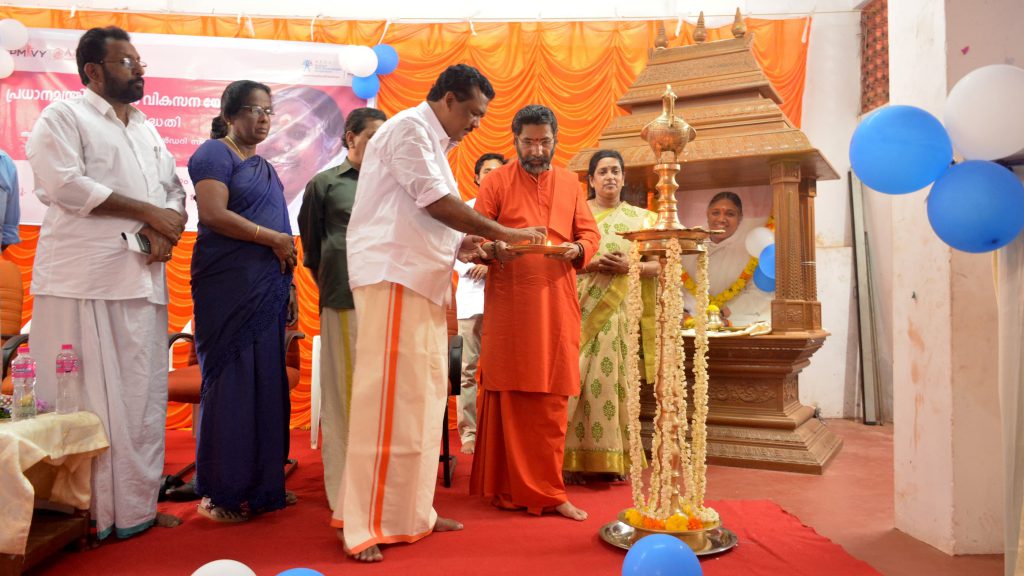
The deployment and pedagogical strategies will use blended and peer-to-peer learning techniques that emphasize participatory approaches to identify and address key social issues that plague students from implementing learned skills.
The courses and learning technologies are designed with a keen focus on user experience, cultural sensitivity, and scalability, thus adding to sustainable development. A rigorous monitoring and evaluation plan towards the objective of developing a training model that can be scaled and replicated is integrated into the implementation of Amrita PMKVY. Lessons learned, best practices and outcomes will be shared to promote knowledge sharing and communities of learning and practice. Assessments, certification, monitoring, and evaluation will be a part of the project.
Overall, the Amrita PMKVY special project shows great promise for India’s future and strives to fulfil the mandate of the Ministry of Skill Development & Entrepreneurship, which is to train and empower India’s youth in the skills they need to succeed.


